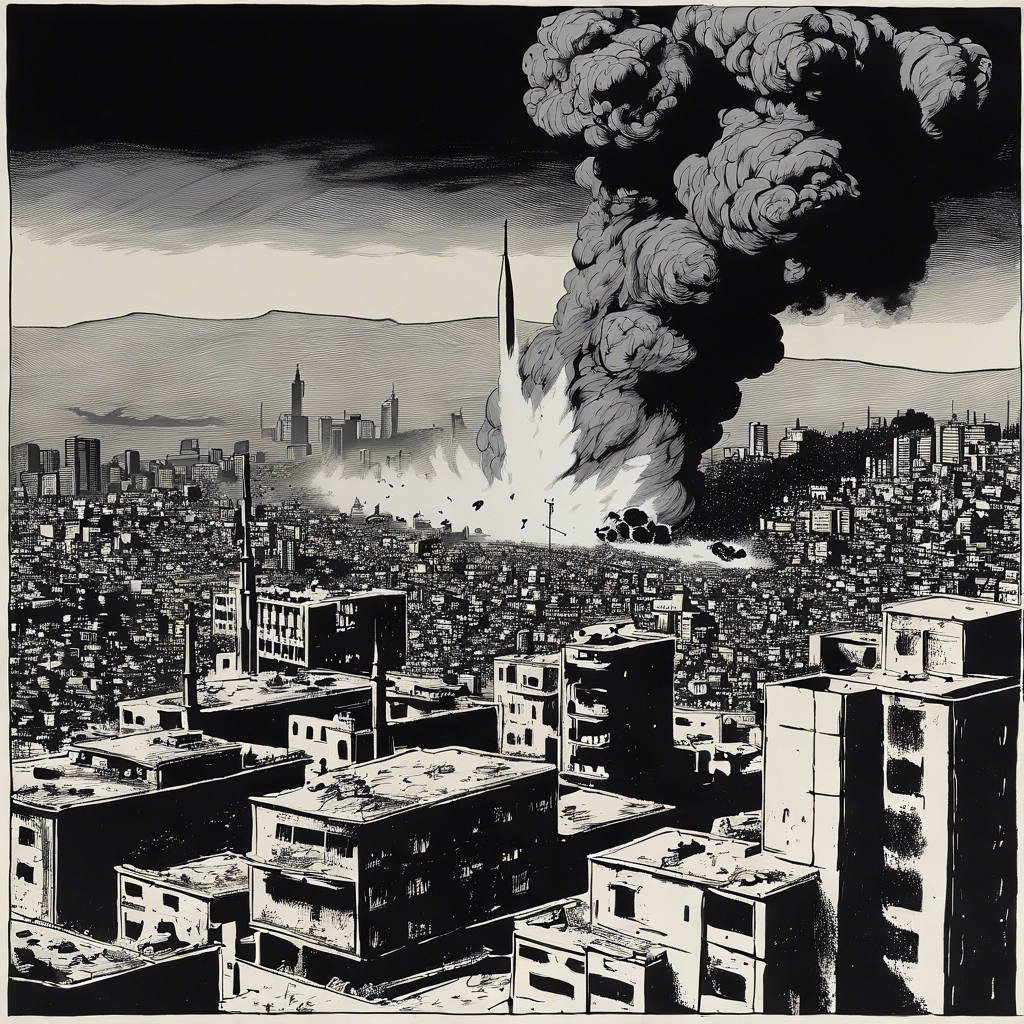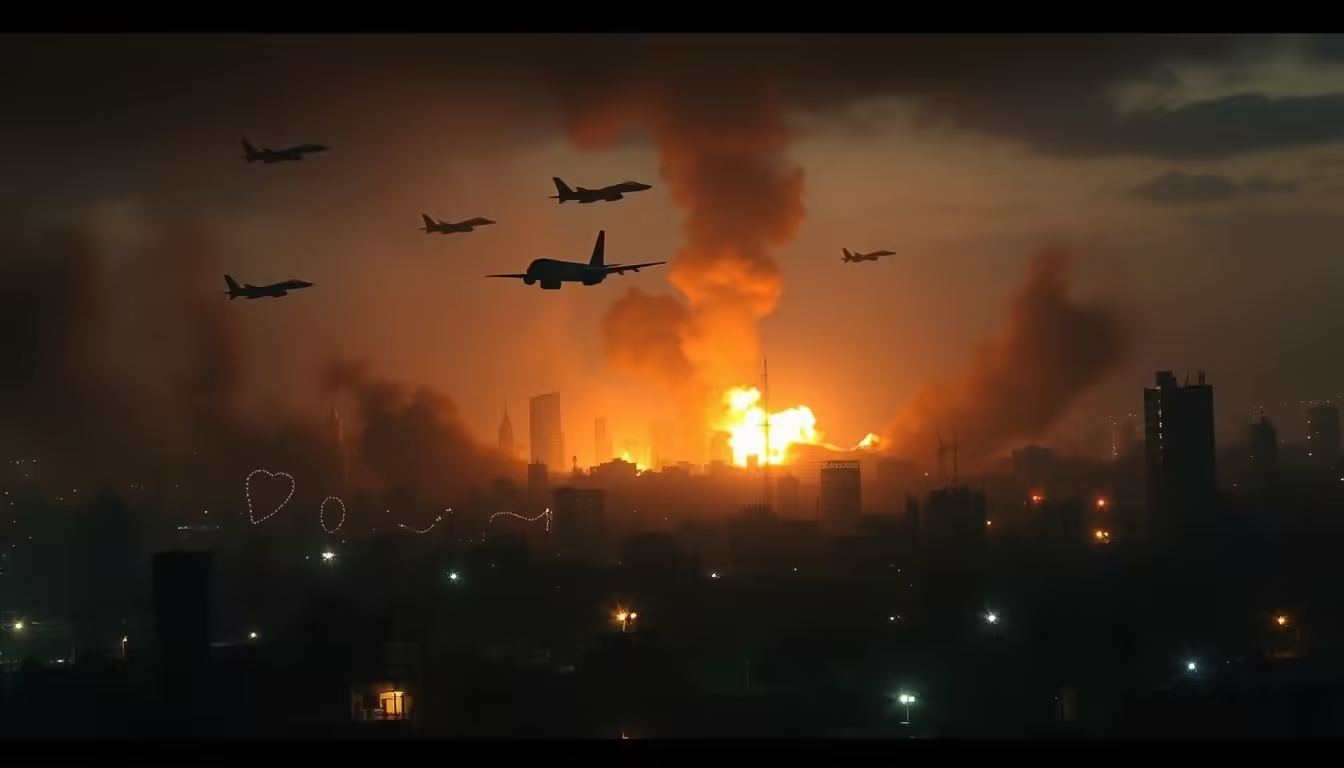Tensions Ignite: Hezbollah’s Missile Chief Killed in Israeli Airstrike, Escalating Conflict in the Middle East
The recent Israeli airstrike on Beirut that killed Hezbollah’s top missile commander marks a significant escalation in the ongoing conflict between Israel and the militant group. This event has heightened tensions in the region, particularly following a series of rocket attacks launched from Lebanon into northern Israel. Here are ten key points detailing the situation:
1. Targeted Airstrike
On September 22, 2024, an Israeli airstrike targeted a residential building in southern Beirut, resulting in the death of Ibrahim Aqil, Hezbollah’s missile chief, along with several other senior military officials. The strike is part of Israel’s broader strategy to dismantle Hezbollah’s military capabilities and prevent further rocket attacks on its territory.
2. Escalation of Hostilities

The airstrike followed a barrage of rockets fired by Hezbollah into northern Israel, which included at least 180 projectiles aimed at various targets, including the strategically important Ramat David Airbase. This marked one of the most intense cross-border confrontations since the conflict escalated in October 2023.
3. Humanitarian Impact
The Israeli airstrikes have resulted in significant civilian casualties in Lebanon, with reports indicating nearly 500 deaths and over 1,600 injuries. The Lebanese Health Ministry confirmed that many of the deceased were women and children. Mass evacuations and destruction in affected areas exacerbate the humanitarian crisis.
4. Israeli Defense Strategy
Israel’s Iron Dome defence system successfully intercepted most incoming rockets during the recent attacks, demonstrating its effectiveness against short-range threats. However, the system’s limitations raise concerns about its ability to handle a large-scale assault. Israeli officials have stated that their military operations will continue until Hezbollah’s capacity to launch attacks is significantly diminished.
5. Hezbollah’s Response
In retaliation for the airstrikes that killed its commanders, Hezbollah launched a series of rocket attacks targeting Israeli military positions. The group has vowed to respond decisively to what they perceive as acts of war by Israel, indicating the potential for further escalation in violence.
6. Geopolitical Implications
The killing of a high-ranking Hezbollah commander may shift power dynamics within the region. Analysts suggest that while Israel aims to weaken Hezbollah’s military capabilities, such actions could provoke a stronger retaliatory response from the group and its allies, including Iran.
7. International Reactions
The international community has expressed concern over the escalating violence. The United Nations has called for maximum restraint to prevent further deterioration. Countries like Germany have urged immediate de-escalation efforts to avoid a broader regional conflict.
8. Domestic Impact on Israel
The ongoing conflict has led to mass evacuations in northern Israeli cities due to rocket threats. Schools have been closed, and civilians have been advised to prepare for potential incoming missiles. Prime Minister Benjamin Netanyahu has emphasized the need for national security and has expanded military objectives against Hezbollah[3][4].
9. Historical Context
This escalation is reminiscent of previous conflicts between Israel and Hezbollah, particularly the 2006 war, which ended without a clear resolution. Current military strategies are being compared to historical operations that aimed at crippling enemy capabilities but face challenges due to Hezbollah’s entrenched presence and support within Lebanon[5].
10. Future Outlook
As both sides prepare for potential further confrontations, analysts warn that continued military engagement could lead to an “imminent catastrophe” in the region. The situation remains fluid, with ongoing military operations likely influencing future engagements and diplomatic efforts aimed at de-escalation.
In conclusion, the death of Hezbollah’s missile chief in an Israeli airstrike not only escalates current hostilities but also poses significant risks to regional stability as both sides brace for potential retaliation and continued conflict.
More Interesting Articles
Hezbollah Declares ‘Open-Ended Battle of Reckoning’ with Israel: Escalating Conflict Unfolds
Controversy Erupts Over Mark Robinson’s Alleged Praise for Hitler in Online Activity
Vladimir Putin’s China Pivot Faces Setbacks: Sanctions Force Moscow to Hike Yuan Transfer Fees
Hezbollah and Israel Clash After Explosive Pagers Ignite Border Tensions, Sparking Fears
Hezbollah Pagers Explode in Covert Israeli Operation: Explosives Planted in Devices
India Slams Supreme Leader Ayatollah Ali Khamenei’s Remarks on Muslim Community
Russia’s Bold Move: Putin’s Provocative Proposal to ‘Have Sex on Breaks’ to Boost Birthrate
BAPS Swaminarayan Temple in New York Vandalized with Anti-India Graffiti
Putin and Mongolia Defy ICC Arrest Warrant: Ukraine War Briefing Amidst International
Israel Launches Major West Bank Military Operation, Resulting in Nine Palestinian Deaths
Balochistan in Turmoil: A Surge of Violence Threatens Pakistan’s Stability
Hindus in Peril: Bangladesh Hindus Descends into Religious Violence After Political Upheaval
Kursk Region: Ukrainian Military Offensive Expands, Marking a New Phase in the Conflict
Tensions Ignite: Israeli Official Declares Iran War ‘Inevitable,’ Urges U.S. Preemptive Strike
Kursk Region Gains: Top Ukrainian Commander Reveals Major Territorial Advances
Former ISI Chief Faiz Hameed Arrested: Unprecedented Court-Martial Initiated
Iconic Statue Commemorating Pakistan Army’s 1971 Surrender Vandalized in Bangladesh
Discover more from News 24 Media
Subscribe to get the latest posts sent to your email.


